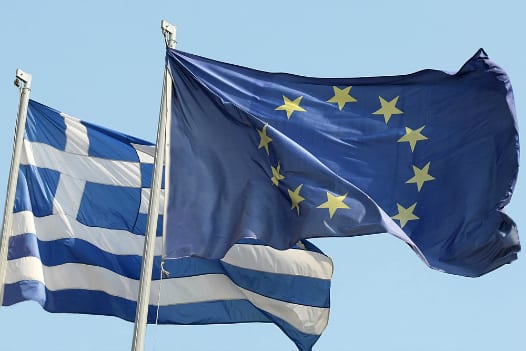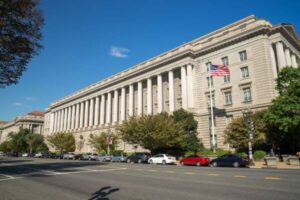Greece’s Economic Turmoil Could Foreshadow Problems in U.S.
As millions of Americans head to the polls tomorrow to exercise their democratic right to vote, a host of issues will be on the forefront. Riddled with facts and figures regarding consistently high unemployment rates, a substantial reduction in middle class net worth, the future of healthcare and a struggling real estate market, Americans will have an opportunity to choose which presidential candidate they believe is best prepared to put the country back on the road to recovery.
In the midst of several presidential debates and constant campaigning by incumbent Barack Obama and Republican candidate Mitt Romney, news of Greece’s austerity movement has created quite a stir among U.S. economists.
Americans are watching very carefully as Greece, the birthplace of democracy, teeters on the edge of economic collapse. For several years, the country of 11 million has struggled to fight off bankruptcy.
Greece Attempts to Avoid Bankruptcy Through Austerity Package
In an effort to stay above water, the Greek government presented a new austerity package to parliament today. Parliament will vote on Wednesday on Prime Minister Antonis Samaras’ package of 13.5 billion Euros ($17 billion) in tax increases and cost cuts in addition to ways to make it easier to hire and fire people. This effort, the government hopes, will help stave off bankruptcy and allow Greece to secure more aid.
The Greek government says it is vital to receive the aid in order to redeem a 5 billion euro treasury bill due November 16. A large portion of the aid, approximately 25 billion euros, has been allocated to recapitalize burdened Greek banks and weakened lending, both essential elements needed to help recover from the severe recession. If lawmakers reject the package, Greece could go bankrupt and depart with the euro.
Possible Economic Collapse in Greece Could Affect American Markets
Analysts say the possibility of a Greek economic collapse and possible departure from the euro may have a negative effect on U.S. markets leading to the fall of stocks on Wall Street. The effects may also be seen in other areas within the Eurozone, such as London, Paris, Milan, Madrid and Frankfurt.
Economists believe parliament will pass the austerity package in spite of public frustration with the previous four years of cutbacks which resulted in eliminating 20 percent of the Greek economy and at least 25 percent of jobs.
Greek unions have expressed their outrage with the current conditions and the possibility of more cuts and have called a general strike for Tuesday and Wednesday which will shut down all public services including transportation.
White House Cautiously Watching Crisis in Greece
Some U.S. economists say the White House is watching the Greek debt crisis carefully as many of the issues Greece faces mimic America’s current economic challenges.
Analysts say the American economy has barely made progress in the past four years, especially with the vast amounts of government borrowing and spending over the years. People are also concerned about their financial futures as the national debt currently stands at $15 trillion. Many economists also warn of the fiscal cliff Americans face at the end of 2012 when the terms of the Budget Control Act of 2011, such as tax breaks, are planned to go into effect.
According to George Mason University’s Mercatus Center, Obamacare is expected to add $1.6 trillion to federal spending over the next 10 years, adding to the expected $340 billion budget deficit anticipated within the same time period. America is said to be facing the largest budget deficit since the Second World War.
America and Greece on Similar Paths
During one of the presidential debates, candidate Mitt Romney said America is on a similar path toward economic crisis as Greece. There are two paths the country can take, Romney told the audience. One is toward $20 trillion in debt after four more years with Obama, and the other to a balance budget under his leadership.
Not all economists agree with the analogy. The U.S. has its own currency, for example, which the Federal Reserve can help weaken if deemed necessary. Greek currency, however, is tied to the euro and the European Central Bank will not consider higher inflation.
In addition, while Greece faces a deep recession, creditors are demanding extremely high interest rates from the country as it tries to avoid default. In contrast, the U.S. has been able to borrow money at low interest rates.
Today, on the cusp of a U.S. presidential election and with the economic future of Greece on the line, the euro fell to a near two-month low against the dollar.
Sources:
- Associated Press. (2012, November 5). Greek unions kick off escalating anti-austerity action. Retrieved from http://www.ctvnews.ca/business/greek-unions-kick-off-escalating-anti-austerity-action-1.1024565
- Tagaris, K. and Maltezou, R. (2012, November 5). Greece makes austerity push, workers gear for strike. Retrieved from http://www.reuters.com/article/2012/11/05/us-greece-idUSBRE8A400J20121105
- Gardiner, N. (2012, May 16). Why Greece’s economic collapse is a nightmare for Barack Obama. Retrieved from http://blogs.telegraph.co.uk/news/nilegardiner/100158147/why-greeces-economic-collapse-is-a-nightmare-for-barack-obama/
- Kavoussi, B. (2012, October 23). Mitt Romney: U.S. 'Heading Towards Greece' With Obama. Retrieved from http://www.reuters.com/article/2012/11/05/us-greece-idUSBRE8A400J20121105


















